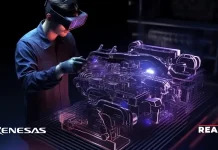10 Million! Yes, you read that right. This was the number of battery electric vehicles being driven on road in 2020 as per the International Energy Agency. This number not only indicates the development of BEVs but also its expansion worldwide.
Recently, prominent car manufacturers have expressed their wish to only manufacture EVs such as Jaguar by 2025, Lotus by 2028 and Volvo by 2030. The evolving trends of EVs are getting huge support in prominent markets such as the US and UK. Herein there is already nationwide infrastructure to support this transformation.
Several reasons for this rapid development of BEVs include:
Emissions
According to Storymaps, the overall internal combustion vehicles emit 1.2-1.6 times more carbon than Battery Electric Vehicles. This is a major factor for a steady shift towards Electric Vehicles.
Even if we consider the emissions created by manufacturing of lithium-ion batteries for EVs, the one time production emits around 1.43 times more carbon than internal combustion engines. But, the very distinction between them gives EVs a one up on the conventional vehicles.
Cost
EVs are gaining popularity in the US and UK rapidly. Why? They are eco-friendly, run on electricity, and… they get subsidies by the government. Yes, in several countries, the EV is yet to get subsidized but looking at the benefits of these cars, governments are being lenient on taxes.
Also, the fewer number of moving parts in the electric cars significantly lower the cost of maintenance compared to the conventional ones. Therefore, the overall cost conventional cars accrue throughout its lifespan is resulting in rising adoption of EVs.
Fueling up
Several regions have started establishing public charging stations. This allows the users to not only charge their vehicles on the go but also avoid long queues and waiting time at dealerships.
The development of a dense electric charging network for EVs is essential to its rapid adoption. The use of queuing systems and maybe private charging stations in the future is expected to be a propelling factor for this market.
Technological Innovation
The conventional cars had near static technological advancement or innovation in the past decade. As EVs are fuelled by electric power, these cars on the other hand are experiencing rapid technological advancements.
For example, several EV charging remotes are now smart, which means these smart remotes inform their user of price drops and allow cost-efficient charging! It also allows the user options for renewable energy, low emissions, or lower tariffs.
Unique Benefits
The EV has a unique characteristic wherein, the cars can give back energy to the Grid. The concept is known as vehicle to grid ( V2G ) where under peak energy demand, the vehicles can give back to the grid.
This option is yet to be widely used, but this allows the user to earn money and also use the unused energy in their car batteries.
Go Green. Go Electric.




